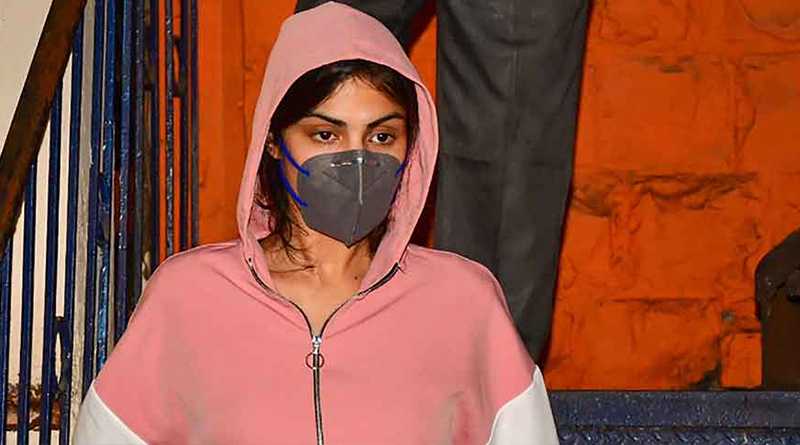Shashi Tharoor, Rhea Chakraborty and now Arnab Goswami. The social and electronic media are baying for their blood, accusing them of driving somebody — wife, lover, and creditor respectively — to suicide. As argued in earlier columns, this is moral and logical nonsense.
Historically, suicide has been a crime in almost all countries. Wikipedia lists hundreds of famous persons globally who died of suicide in the 21st century. Recent examples include actor Robin Williams, financier Jeff Epstein and chef Anthony Bourdain. The reason is almost always mental stress for some reason.
Since suicide is a crime, so is abetment to suicide. The word “abet” means “assist.” If a doctor assists a patient’s suicide, that is abetment. But in India hardly anybody is arrested for that. Rather, the police and courts interpret “abetment to suicide” to mean “driving to suicide”. I know of no other country where this happens. In none of the famous suicides globally have lovers or creditors been accused of abetting suicide.
I personally know many people — including my younger brother Mukundan and others in school and college — who died of suicide. They were tormented by life’s challenges and unfairness, fought with inner demons, and succumbed to stress that others could cope with. They were victims, not criminals. Many state governments give compensation to the families of farmers who commit suicide (as highlighted in the film Peepli Live). So, why don’t they decriminalise suicide?
“Driving to suicide” is a commonplace phrase but lacking in medical rigour or legal soundness. Thousands of students die of suicide every year after bad exam results. Should parents (who put pressure on their children) and teachers (who set exam papers) be accused of driving the students to suicide?
Many debtors who cannot repay bank loans kill themselves. Should all bankers who lent them money be jailed for driving them to suicide? If so, why should bankers risk lending money at all?
Every year, court judgments inflict terrible blows on those who lose, and some resort to suicide. A prominent recent example was Kalikho Phul, former chief minister of Arunachal Pradesh. He was ousted by the Supreme Court for coming to power through illegal political manipulation. Deeply humiliated, he resorted to suicide. Should the Supreme Court be prosecuted for driving him to suicide? No, that would be nonsense in all the examples discussed above.
My earlier columns have repeatedly pointed out that the suicide rate in India, and indeed globally, is around 11 per lakh people, or 0.01%. This can rise tenfold to 0.1% in great stress-causing disasters, but even so 99.9% of people remain suicide-proof. The rate is the same in rich USA and poor India. India’s suicide rate in highest in Puducherry and Kerala, but low in Bihar and UP, not because harassment and deprivation are greater in the south, but because cultural attitudes to suicide and mental stress are different. A study by Anuradha Bose in The Lancet found that the suicide rate among Tamil girls aged 15-19 years was 146/lakh — ten times the global average.
Through history, millions died in droughts and epidemics. Even so 99.9% did not commit suicide, since the desire to live overwhelmed the worst deprivations for all but a tiny suicide-prone minority. Millions preferred to die horribly rather than kill themselves in the Bengal famine or genocides of Hitler and Stalin. They had far more cause to resort to suicide than Sushant Singh Rajput or the creditors of Arnab Goswami but did not.
Overwhelmingly, unfortunates kill themselves because they belong to the 0.01% that are suicide prone. They cannot stand the stress of quarrels with spouses and relatives, unfair treatment, or failures in love, business, and exams. They are victims of mental ill-health.
India’s recent Mental Health Care Act does not formally decriminalise suicide. But it says those attempting suicide will be presumed to be victims of mental ill-health, and hence protected from criminal prosecution. That is a welcome step. However, if suicide is in effect presumed to be legal, how can abetment to such a legal act be prosecuted as illegal, as the police are doing in the cases of Tharoor and Goswami? In both cases, the main reason for prosecution appears to be political vendetta. My liberal friends say Goswami constantly incites communal hate in his TV show (and was relentless in his campaigns against Tharoor and Chakraborty). If so, let him be prosecuted for inciting hate, not the trumped-up charge of abetting suicide.
In sum, suicide is not a crime, and you cannot be driven to it. The Supreme Court needs to proclaim that the notion of driving people to suicide is medically and logically ill-founded, and anyway must not be confused with abetment.


